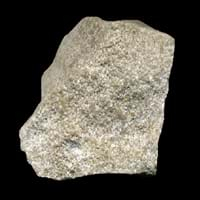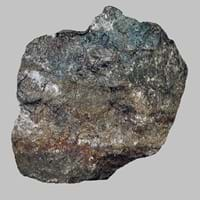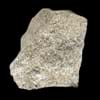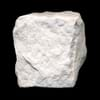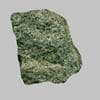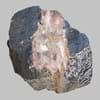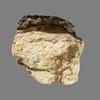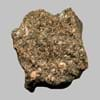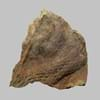Definition
Definition
Oolite is a sedimentary rock formed from ooids, spherical grains which are composed of concentric layers of calcite
Monzonite is a granular igneous rock with composition between syenite and diorite and containing approximately equal amounts of orthoclase and plagioclase
History
Origin
Unknown
Trento Province, Italy
Discoverer
Unknown
Unknown
Etymology
From oo- + -lite, after German Oolit. A rock consisting of fine grains of carbonate of lime
From Mount Monzoni in the Tyrol, Italy, + -ite1
Class
Sedimentary Rocks
Igneous Rocks
Sub-Class
Durable Rock, Medium Hardness Rock
Durable Rock, Hard Rock
Family
Group
Volcanic
Plutonic
Other Categories
Fine Grained Rock, Opaque Rock
Coarse Grained Rock, Fine Grained Rock, Medium Grained Rock, Opaque Rock
Texture
Texture
Clastic or Non-Clastic
Phaneritic
Color
Black, Blue, Brown, Cream, Green, Grey, Pink, Red, Silver, White, Yellow
Black, Brown, Light to Dark Grey, White
Maintenance
Less
Less
Durability
Durable
Durable
Water Resistant
No
Yes
Scratch Resistant
Yes
Yes
Stain Resistant
Yes
Yes
Wind Resistant
No
No
Acid Resistant
No
Yes
Appearance
Rounded and Rough
Shiny
Uses
Architecture
Interior Uses
Decorative Aggregates, Flooring, Interior Decoration
Decorative Aggregates, Flooring, Interior Decoration
Exterior Uses
As Building Stone, As Facing Stone, Garden Decoration, Paving Stone
As Building Stone, As Facing Stone, Office Buildings, Paving Stone
Other Architectural Uses
Not Yet Used
Curbing
Industry
Construction Industry
Cement Manufacture, Cobblestones, Landscaping
As Dimension Stone, Cement Manufacture, Construction Aggregate, for Road Aggregate
Medical Industry
Not Yet Used
Not Yet Used
Antiquity Uses
Artifacts
Artifacts, Monuments, Sculpture
Other Uses
Commercial Uses
Creating Artwork, Jewelry, Used in aquariums
Creating Artwork
Types
Types
Not Available
Quartz Monzonite, Mangerite, Syenite and Diorite
Features
Available in lots of colors, Generally rough to touch, Very fine grained rock
Available in lots of colors, Is one of the oldest rock
Archaeological Significance
Monuments
Not Yet Used
Used
Famous Monuments
Not Applicable
Data Not Available
Sculpture
Not Yet Used
Used
Famous Sculptures
Not Applicable
Data Not Available
Pictographs
Used
Not Used
Petroglyphs
Used
Not Used
Figurines
Not Yet Used
Used
Fossils
Present
Absent
Formation
Formation
Oolites form when layers of calcite are deposited around a sand grain or fossil piece and are rolled around in calm water, which makes them round.
Monzonite is a fine-grained, hard rock which is a type of metasomatite, essentially altered basalt. It forms with or without crystallization, either below the surface as intrusive rocks or on the surface as extrusive rocks.
Composition
Mineral Content
Calcite, Chert, Clay, Dolomite, Quartz, Sand, Silt
Albite, Amphibole, Apatite, Biotite, Feldspar, Hornblade, Ilmenite, Magnetite, Muscovite or Illite, Olivine, Plagioclase, Pyroxene, Quartz, Sulfides, Titanite, Zircon
Compound Content
Aluminium Oxide, Ca, NaCl, CaO, Iron(III) Oxide, FeO, MgO
Aluminium Oxide, CaO, Iron(III) Oxide, FeO, Potassium Oxide, MgO, MnO, Sodium Oxide, Phosphorus Pentoxide, Silicon Dioxide, Titanium Dioxide
Transformation
Metamorphism
No
Yes
Types of Metamorphism
Not Applicable
Burial Metamorphism, Cataclastic Metamorphism, Impact Metamorphism
Weathering
Yes
Yes
Types of Weathering
Biological Weathering, Chemical Weathering, Mechanical Weathering
Biological Weathering
Erosion
Yes
Yes
Types of Erosion
Chemical Erosion, Coastal Erosion
Chemical Erosion, Coastal Erosion, Glacier Erosion, Water Erosion
Properties
Physical Properties
Hardness
3-4
6-7
Grain Size
Fine Grained
Medium to Fine Coarse Grained
Fracture
Conchoidal
Not Available
Streak
White
White
Porosity
Less Porous
Less Porous
Luster
Pearly to Shiny
Subvitreous to Dull
Compressive Strength
Not Available
310.00 N/mm2
2
Cleavage
Non-Existent
Not Available
Toughness
1
Not Available
Specific Gravity
Not Available
2.8-3
Transparency
Opaque
Opaque
Density
Not Available
2.9-2.91 g/cm3
Thermal Properties
Specific Heat Capacity
Not Available
0.92 kJ/Kg K
10
Resistance
Heat Resistant, Wear Resistant
Heat Resistant, Impact Resistant, Pressure Resistant
Reserves
Deposits in Eastern Continents
Asia
Brunei, India, Indonesia, Malaysia, Singapore, Thailand, Vietnam
China, India, Iran, Saudi Arabia, Sri Lanka, Taiwan, Thailand, Turkey, Vietnam
Africa
Cameroon, Chad, Ghana, Kenya, Malawi, Sudan, Tanzania, Togo, Zambia, Zimbabwe
Angola, Egypt, Ethiopia, Madagascar, Namibia, Nigeria, South Africa
Europe
United Kingdom
Bulgaria, England, Germany, Norway, Romania, Switzerland
Others
Not Yet Found
Not Yet Found
Deposits in Western Continents
North America
USA
USA
South America
Colombia
Argentina, Bolivia, Brazil, Chile, Colombia, Ecuador, Peru
Deposits in Oceania Continent
Australia
Adelaide, New Zealand, Queensland, Tonga, Victoria, Yorke Peninsula
New South Wales, New Zealand, Queensland, South Australia, Western Australia
|
||
|
||
|
